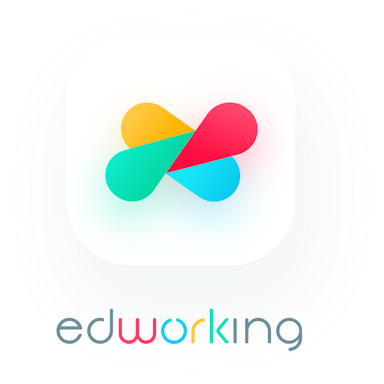Picture this: You're in the middle of a heated discussion or a critical business meeting, and suddenly you find yourself unable to recall a key fact or name. Your mind draws a blank, and you're left feeling awkward and frustrated. This, dear reader, is a classic case of memory block, a common phenomenon that can disrupt our thought process. However, worry not, because, in this blog, we're going to explore the root causes of memory block and provide actionable strategies to overcome it.
And speaking of smooth workflow without disruptions, tools like Edworking can provide a well-rounded platform for seamless remote work coordination. Let's dive in.
 Understanding Memory Block: The Invisible Barrier
Understanding Memory Block: The Invisible Barrier
Memory block or mental block, is essentially a failure to recall information stored in our memory. It usually happens when a person is unable to recall a specific piece of information, despite it being on the 'tip of their tongue.' Such a phenomenon can be short-term and typically occurs when one is under immense stress or pressure.
Intrinsic factors, such as stress, anxiety, or fatigue, often contribute to memory block. It can also be exacerbated by external influences, such as a demanding work environment or lack of work-life balance.
Often, memory block is temporary and not a cause for significant concern. However, if you're experiencing frequent memory blocks that disrupt your daily life, it might be beneficial to consult a healthcare professional. Are you feeling stressed with remote work management?
 The Root Causes: What Lies Beneath?
The Root Causes: What Lies Beneath?
Understanding the root causes of memory block can equip us with the necessary tools to tackle it. Memory block can stem from a variety of causes, ranging from mental fatigue to a lack of focus, to more severe cases of mental health conditions such as depression or anxiety disorders. Let's delve deeper into these causes:
- Mental Fatigue: Our brains, like any other part of our bodies, can become exhausted, especially after prolonged periods of intense mental activity. This fatigue can lead to a temporary memory block, as our brains struggle to recall information accurately.
- Stress and Anxiety: High levels of stress and anxiety can impair various brain functions, including memory. When we're stressed, our bodies enter the 'fight or flight' mode, which can make it harder to access stored information.
- Lack of Focus: Our minds can often wander, especially when we're multitasking. This lack of focus can hinder the information storage and retrieval process, leading to memory block.
- Mental Health Conditions: In some cases, more severe mental health conditions, such as depression, bipolar disorder, or anxiety disorders, can contribute to memory block. If you suspect this to be the case, it's important to seek professional help.
If stress and lack of focus are affecting your work productivity, check out this blog.

 Strategies to Overcome Memory Block: The Road to Recall
Strategies to Overcome Memory Block: The Road to Recall
Now that we've identified the root causes of memory block, it's time to equip ourselves with strategies to overcome it. These techniques not only help in recalling information but also contribute to enhancing overall cognitive performance.
Just as you need strategies to overcome memory block, having the right tools can help streamline your workflow. Edworking, for instance, provides an all-in-one remote work solution to keep you focused and productive.
- Rest and Relaxation: It might sound overly simple, but sometimes all our brains need is a break. Regularly taking time to rest and relax can significantly reduce mental fatigue, one of the key contributors to memory block. Ensuring that you have a healthy work-life balance can improve your overall cognitive functioning and reduce instances of memory block.
- Mindfulness and Meditation: Mindfulness techniques and meditation can be potent tools in managing stress and anxiety, which are often root causes of memory block. By regularly practicing mindfulness, you can train your brain to focus better, improving memory recall in the process.
- Regular Exercise: Physical exercise has been shown to have several benefits for brain health. Regular physical activity can help reduce stress and anxiety levels, improve sleep, and increase focus and concentration—all factors that can enhance memory recall.
- Healthy Eating: A balanced diet can also play a crucial role in maintaining good cognitive health. Certain foods, like those rich in omega-3 fatty acids and antioxidants, are known to boost brain function and potentially improve memory.
- Cognitive Training: Cognitive training exercises, such as puzzles, memory games, or learning a new skill, can help improve your memory over time. These activities keep the brain active and engaged, strengthening memory connections and making recall easier.
- Professional Help: Lastly, if you're experiencing severe or frequent memory blocks that interfere with your daily life, it might be beneficial to consult a healthcare professional. They can provide a proper diagnosis and suggest an appropriate course of action.

 Conclusion: Reclaiming your Cognitive Command
Conclusion: Reclaiming your Cognitive Command
Memory block can be a frustrating experience, disrupting our flow of thought and impacting productivity. However, by understanding its root causes and implementing strategies to overcome it, we can significantly improve our recall ability. It's crucial to remember that everyone experiences memory block from time to time; what's important is not to panic and instead focus on maintaining a healthy, balanced lifestyle.
Just as these strategies can help improve memory recall, utilizing a robust remote work management tool like Edworking can help streamline your work process, improving productivity and reducing stress.
Whether it's ensuring proper rest and relaxation, practicing mindfulness, maintaining a balanced diet, or seeking professional help, remember, it's all part of your journey to mastering your mind and reclaiming your cognitive command. Stay resilient, keep learning, and remember, you're not alone in this journey.







